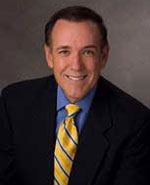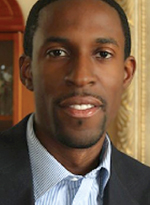
Uncategorised


If I Am Nothing Else, I Will Live Vibrant!

How the Tongue Can Spiritually Lead You, Not Spiritually Destroy You

Your Extraordinary Life
David the Great

The Top 3 Reasons Pastors Quit
And almost half who left said their churches weren't doing anything to help.

7 Reasons Why Some Pastors Don't Preach on End Times Prophecies
Is your pastor unprepared or unwilling to preach this important message?

1 Big Reason Spiritual People Are Leaving Churches
Sometimes people cannot even articulate the reason they are leaving, but this is often the real root.
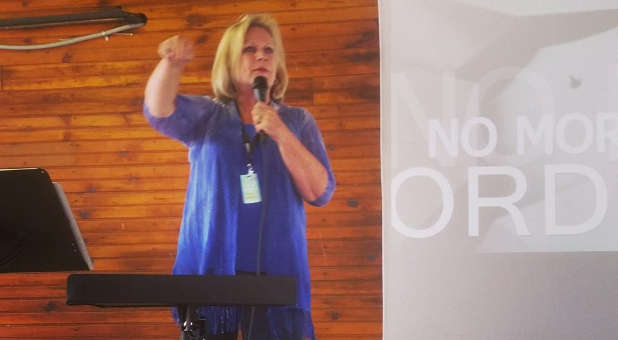
This Is The Most Contagious and Dreaded Disease in Women's Ministry
And it's germs are spreading in epic proportions.

Study: Fewer Than Half of Americans Call Homosexuality a Sin
Find out what the numbers are for those who know somebody that is gay. It could shock you.
Statement of Faith
What We Believe
- We believe the Bible to be the inspired, infallible, authoritative Word of God.
- We believe that there is one God, eternally existent in three persons: Father, Son and Holy Spirit.
- We believe in the deity of our Lord Jesus Christ, in His virgin birth, in His sinless life, in His vicarious and atoning death through His shed blood, in His bodily resurrection, in His ascension to the right hand of the Father, and in His personal return in power and glory.
- We believe that for the salvation of lost and sinful man, regeneration by the Holy Spirit is absolutely essential.
- We believe in the present ministry of the Holy Spirit by whose indwelling the Christian is enabled to live a godly life.
- We believe in the resurrection of both the saved and the lost; of they that are saved unto the resurrection of life and of they that are lost unto the resurrection of damnation.
- We believe in the spiritual unity of believers in our Lord Jesus Christ.
George O. Wood: Out-of-the-Box Accounting Methods
 A serious church management issue presented itself when I became a pastor in Costa Mesa, Calif. All the financial records were stored in a shoebox in a closet at the treasurer’s house. The record-keeping was not even close to being up-to-date, and the board received no reliable financial reports.
A serious church management issue presented itself when I became a pastor in Costa Mesa, Calif. All the financial records were stored in a shoebox in a closet at the treasurer’s house. The record-keeping was not even close to being up-to-date, and the board received no reliable financial reports.
Although it took a while, we got the finances out of the shoebox and into the church office, and we began putting together regular accounting reports.
With bookkeeping in such a mess, the church had never had a budget either. I was no accountant, but I knew any church needs a budget.
We had to have a way to report financials, so I created a simple system using Roman numerals I and II. These represented the church’s two basic areas of expenditure: ministry to our community and ministry to our world.
7 Exciting Things a Pastor Experiences
 Pastors get to see the best and worst of life it seems, but there are many positives.
Pastors get to see the best and worst of life it seems, but there are many positives.
Obviously, seeing someone become a follower of Christ or baptism of a believer, has to rank as a highlight of the pastor’s experience. That’s what we are called to do. But, that experience isn’t unique to pastors. Every believer, hopefully, gets excited about seeing people’s entry into faith. That’s the call of the church; not only pastors.
So, my list is beyond those experiences to things that may be somewhat unique to pastors. I’m not saying only pastors get excited about these experiences, but to pastors, these are especially exciting. Also, different pastors will have different answers. That’s where the comments section makes this post even better.
Here are seven exciting things pastors experience:
Why You Want Discipline as Your Best Friend
 Sitting at the airport in Singapore en route to home. After Sydney, we flew to Melbourne and had a lovely time with Pastor Kevin Conner and his wife, Rene. Now 86 years old, Pastor Kevin is a good friend of our ministry and has been a mentor of sorts to many of us through his teaching and writing.
Sitting at the airport in Singapore en route to home. After Sydney, we flew to Melbourne and had a lovely time with Pastor Kevin Conner and his wife, Rene. Now 86 years old, Pastor Kevin is a good friend of our ministry and has been a mentor of sorts to many of us through his teaching and writing.
Over dinner I was reminded of the many times this humble man of God has impacted my life and the lives of many others. Once, we asked him for his greatest tip for successful living. His reply was one word: Discipline. I couldn’t forget that learning moment with him.
When you think about it, discipline sounds very similar to disciple. I don’t know where we get the idea that in order to be a follower of Christ, we won’t need this important word that affects every facet of life.
Rick Warren: Show You Believe By Belonging
 “Your love for one another will prove to the world that you are my disciples.” (John 13:35, NLT)
“Your love for one another will prove to the world that you are my disciples.” (John 13:35, NLT)
The Bible says a Christian without a church home is like an organ without a body, a sheep without a flock, or a child without a family. It is an unnatural state. The Bible says, “You belong in God’s household with every other Christian” (Ephesians 2:19b, LB).
Today’s culture of independent individualism has created many spiritual orphans—“bunny believers” who hop around from one church to another without any identity, accountability or commitment. Many believe it is possible to be a “good Christian” without joining (or even attending) a local church, but God would strongly disagree.
The church is so significant that Jesus died on the cross for it: “...Christ loved the church and gave his life for it” (Eph. 5:25 GW).
Learn the Difference Between Personality and the Holy Spirit
 A pleasant personality can look like the fruit of the Spirit. There are people who are just simply nice. They are sweet, friendly and cheerful. They are the type of people you want to be around all the time. At times their pleasant personalities can put Christians who have been saved for years to shame.
A pleasant personality can look like the fruit of the Spirit. There are people who are just simply nice. They are sweet, friendly and cheerful. They are the type of people you want to be around all the time. At times their pleasant personalities can put Christians who have been saved for years to shame.
However, sometimes in their case an aspect of God's common grace is substituting for the Spirit's manifestation. Their pleasantness may have nothing whatever to do with the fruit of the Spirit. Actually, they acted the same way before they were converted.
It can be difficult to convince people like this of their own need to exhibit the fruit of the Spirit. But sooner or later their self-righteousness will surface if they haven't been convicted of sin. If you recognize this problem in yourself, I urge you to do two things:
Did You Miss This in the News?
 Check out some links below to recent stories from Charisma News that you'll find interesting and informative. You can also sign up to receive stories on your smart phone by signing up for the free Charisma News app by clicking here.
Check out some links below to recent stories from Charisma News that you'll find interesting and informative. You can also sign up to receive stories on your smart phone by signing up for the free Charisma News app by clicking here.
- 'No Religion' Third World Group After Christians, Muslims
- Montana Supreme Court Denies Same-Sex Couples Benefits
- God and the Devil in Light of the Newtown Massacre
- A Prayer for Sandy Hook and Visions of Children at Jesus' Feet
- Obama Quotes Scripture, Prays Blessing at Vigil for Connecticut Shooting Victims
Leaders Are Readers
Books and Resources to Empower, Equip and Edify
 In Beauty Will Save the World: Rediscovering the Allure and Mystery of Christianity
In Beauty Will Save the World: Rediscovering the Allure and Mystery of Christianity
(Charisma House), Brian Zahnd, senior pastor of Word of Life Church in St. Joseph, Miss., explains why “our task is not to protest the world into a certain moral conformity, but to attract the world to the saving beauty of Christ.” Despite the gains of the 21st century, which include technology and prosperity, causalities have occurred, he says—reminding believers that the story of the life, death and resurrection of Christ is not only the greatest story ever told, but also is the most beautiful.
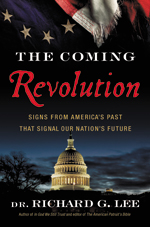
Richard G. Lee, founding pastor of Atlanta’s First Redeemer Church and general editor of The American Patriot’s Bible, believes that many of the same social and religious provocations that spurred the colonists toward the American Revolution are present today. Sensing that America is on the brink of a new revolution, Lee seeks to inspire his readers to fight and win the battle for personal and national freedom in The Coming Revolution: Signs From America’s Past That Signal Our Nation’s Future (Thomas Nelson), which features a foreword by former presidential candidate Mike Huckabee.

Modern-day teaching on prosperity often focuses on excess, but in Supernatural Provision: Where God Guides, He Provides (Destiny Image), Mark Hendrickson, formerly a worship leader at the International House of Prayer in Kansas City, Mo., and now with Dwelling Place Ministries in Kansas City, sets out to equip believers with faith and a new understanding of God as their provider. Recalling the Old Testament story of Abraham preparing Isaac for sacrifice, Hendrickson recounts how the Lord showed Himself in that moment as Jehovah-Jireh, a name derived from a Hebrew word meaning “God Himself will see to it.”

Insecurity and inferiority were imparted to mankind in the Garden of Eden and are the underpinnings of all other evil, according to author Steve Foss in Satan’s Dirty Little Secret ... The Two Demon Spirits that All Demons Get Their Strength (Charisma House). After giving a short background on how this revelation came to him personally and impacted his ministry, Foss eagerly asserts that understanding this and getting the victory over insecurity and inferiority will release believers from bondage and empower them in a greater way. Foss lays his arguments out from Scripture for the cause of the problem as well as the prescription. The solution, he says, is most clearly depicted in Paul’s prayer in Ephesians for a deeper understanding of the love of God and the standing He gives His people.

After years of personal experience with the demonic realm, prophetic minister Kris Vallotton takes a unique approach to spiritual warfare in Spirit Wars: Winning the Invisible Battle Against Sin and the Enemy (Chosen). Unlike many books, Spirit Wars teaches that we are triune beings composed of spirit, soul and body, each dimension affecting the other. Vallotton writes each chapter with humility as he couples his testimony with the Word of God. A transparent account of anxiety attacks, demonic visitations, physical sickness and a spirit of fear, Spirit Wars identifies why the behavior of the spirit world is so difficult to define.

The second in the four-book Glory to Glory Sisterhood series, Princess Warriors: Engaging Spiritual Warfare (Destiny Image) by Robin Kirby-Gatto discusses the fear of the Lord and spiritual warfare, aiming to equip women to win the battle for their own life, family, destiny, church, community and nation. Kirby-Gatto instructs readers on the basics of spiritual warfare, including how to hear the Holy Spirit, use the keys of the kingdom and possess a warrior mentality.

With an emphasis on leadership in the church today, best-selling author Leonard Sweet urges believers to opt for counterculture and focus on following. In I Am a Follower: The Way, Truth, and Life of Following Jesus (Thomas Nelson), Sweet says that following is “the most underrated form of leadership in existence.” Arguing that the word follower has become a second-class term or even a term of derision, Sweet challenges church leaders to invite people into a fellowship of followers rather than to come under their leadership.
Our Banana Tree Christmas
 Facing a 'different' Christmas while in Africa, our family discovered new meaning in the season
Facing a 'different' Christmas while in Africa, our family discovered new meaning in the season
by John and Elizabeth Sherrill
"Christmas is the time when nothing ought to change."
Our newly married daughter Liz put into words what all of us were feeling. We had come from out home in New York state to spend the holidays with her and her husband Alan (ninth generation Massachusetts) in their new apartment in Tucson, Ariz. Outside, on the day before Christmas, cactus-wrens hopped about the mesquite bushes beneath a glorious desert sky, while indoors the four of us gulped iced tea and thought of pine woods and falling snowflakes.
"Home in Leicester," Alan recalled, "we'd generally go skating about now."
"And tonight there'd be the midnight service at St. Mark's!" said Liz. "Remember, Mom and Dad, how you can see your breath, walking in from the parking lot?"
We did remember. We wanted every time-hallowed tradition just as it always had been. No changes. Not at Christmas.
Andy yet ... we remembered one very different Christmas. A Christmas when we'd learned something important about change—whenever it comes. We doubted that Liz could recall many of the details, since it happened years ago. So for her, as well as Alan, we related the story of our Banana Tree Christmas.
We'd been sent with out three children—Scott, then 12, Donn, age 9, and Liz, 6—on a year-long magazine assignment to Uganda. Except for one elderly German couple who lived a quarter-mile below us on a jungle hillside overlooking Lake Victoria, our neighbors were Baganda people, living in mud and thatch houses. Everyone in the family was reveling in the differentness of Africa.
That is, until December. As the Christmas season drew near we began to realize that this was the time of year when we treasured tradition, not contrast. In his own way, each of us began to mourn. We became positively maudlin about the Christmases we had known, lamenting that here on the equator we could never hang our stockings by the chimney with care—there were no chimneys.
Above all, how could we have Christmas with no Christmas tree—that beautiful evergreen symbol of the undying Life that came to earth at Bethlehem? Stringing the lights, hanging the stars, setting the Herald Angel on the topmost branch—every stage of this joyous family activity had been an occasion to talk about the coming of God's Son. But of course evergreen trees do not grow in the tropics.
Why Your Church Needs a Bookstore
Offering the gospel through merchandising is an effective ministry
During my early years in the ministry, I had visions of where I wanted my church to go. I wanted to minister to the community by offering a Christian preschool and also a K-12 academy, if possible. Everyone seemed to like that idea.
However, I had another vision—one that wasn’t as popular. I wanted a Christian bookstore in our church. Not a book table—a bookstore.
I believed that a bookstore would be a dynamic ministry in the church and a unique outreach to the community.
Peer to Peer
How I discovered the unexpected joy of leading from the middle
Throughout my college career I was privileged to develop a number of meaningful relationships with my peers. The most valuable ones became those in which intentional investments of time and resources were given as a friend and mentor.
I soon realized that there was something more consequential than my own wisdom. For these young men, the most valuable items that I possessed were my own two ears. One-on-one communication became one of the greatest leadership tools that I could ever develop.
Many people were desperately longing for someone to listen. Leadership began to take a whole new shape. The gift of presence, both physically and mentally, began to speak louder than my words ever could. I quickly developed the skills of an active listener, meaningfully responding to things that I would hear.
Leadership 2.0
Are you using social media to lead and grow your ministry?
Oral Roberts, the founder of Oral Roberts University, was a master at adopting new technology to advance the gospel. TV was the innovative media at the time. The biggest shift in communications recently has been in social media. A Christian leader should adopt the innovative mindset Roberts had and discover the value of these new resources.
Perhaps you are already heavily involved with a blog, Facebook, Twitter, YouTube and other social media tools. If not, I urge you to give one of these media resources a try. It can give your congregation and ministry partners a more intimate look into how God has shaped and is shaping your faith.
Empower Your Team
Having social media initiatives is a must for every church and ministry. These platforms are an effective and inexpensive way to communicate to your community of faith and reach new circles of people. So how do you get involved in or enhance your social media efforts? Start by looking at the people around you who can leverage these new technological resources to fulfill your organization’s mission.
Sloppy or Sacred?
How attitudes and expertise hinder or release true worship
Even the most casual observer of contemporary church worship can see how radically the landscape has changed. Christian worship music has never stopped evolving across 2,000 years of history, and modern American worship music would hardly be recognizable to the believers in the upper room. That is not bad. It simply means that vital worship is always relevant in its historical context.
In recent history, there has been a shift from an emphasis on musicality toward an emphasis on entering God’s presence. In many churches, the big choir and orchestra sound of the last 20 years of the 20th century has yielded to a more casual feel of smaller worship “teams.” The worship leader has largely replaced the choir director, at least in most charismatic and Pentecostal churches. Even in many evangelical churches choruses have taken the place of hymns and a choir “special.”
Among the youngest of worshipers—especially college
students—this has often created a mentality that suggests, “The more imperfect the sound, the more authentic the worship.” This was an overcorrection of what they perceived as the errors of the previous generation. The problem, of course, is that sloppy is not sacred.
Leading Together
Four ways for couples to keep the joy in joint ministry
Perhaps many people in ministry have this concept of how things should look: Strong, anointed husband brings the Word every week while Proverbs 31 wife leads the women and hospitality ministries. Together they engage in perfect parenting with a home life envied by all.
Idealistic? Maybe. But when you throw in pressures and expectations coming from the church flock, many husbands and wives find joint ministry a challenge, if not a disappointment. In our own journey of leading two churches, blending a family of four sons and endeavors that go beyond ministry, we rely on the grace of God and the following few strategies to help us survive and thrive both at home and in leading together:
1. Remember, there is a unique model for every couple. Marriage is as unique as the two people in it, and while the aforementioned ideal may be attainable for some, for most of us it looks different.
Go Against the Flow
Why we must avoid nonessential encounters to stay true to our calling
So who would win in a fight—Goliath or Bathsheba? Actually a better question might be, “Which of them would pose the greatest threat to a king?” King David would think the question is a no-brainer. He would say, “A giant on a battlefield is far less dangerous than a bathing woman on a rooftop—because kings weren’t made for rooftops in times of war.”
Countless preachers have unpacked the sordid details of David’s affair with Bathsheba, inevitably highlighting the fact that David never should have encountered her in the first place. The poignant tone of 2 Samuel 11:1 instantly warns us that something is not right when it says, “In the spring, at the time when kings go off to war, David sent Joab out with the king’s men. ... But David remained in Jerusalem” (NIV).
In addition to its moral lesson, this story contains two leadership principles that are essential for our long-term success as pastors and ministry leaders.
Souls for Sale
How pornography is linked to the global sex-trafficking industry
Human trafficking has been a significant problem for the better part of 30 years, yet it is only now gaining widespread recognition. I don’t think there is any explanation for this other than God’s decision to highlight this injustice in a pronounced way. The fact is that God is a God of justice. Indeed, righteousness and justice are the foundation of His throne (see Ps. 89:14).
The Lord has ordained a day when He will judge the nations with righteousness and purge all injustice from the face of the earth. We long for that day and are to heed His call to walk in His ways, to pursue righteousness, to care for the poor and oppressed.
God’s people are to cry out for justice for the needy and afflicted, for God’s kingdom to come on earth as it is in heaven, for captives to be set free. Each week at the International House of Prayer (IHOP) in Kansas City, Mo., we host prayer meetings that focus on asking for the Lord’s judgment to break in upon human trafficking rings and for the captive victims to be set free. But
who are these ones?
Kingdom Networking
How relationship-building will help grow the 21st century church
The carpet was soaked beneath my tear-swollen eyes. I couldn’t believe it was already 4 a.m. For more than two hours, the Holy Spirit had been pouring over my soul. The church I served as pastor was in a week of 24/7 prayer. I had committed to the 2 a.m. to 3 a.m. time slot to ensure that someone was praying all 24 hours. On this particular morning heaven seemed to open.
“I am going to send a second flood,” I heard. Inspiration and Scriptures flowed with Habakkuk’s declaration that “For the earth will be filled with the knowledge of the glory of the Lord, as the waters cover the sea” (2:14). The instruction continued: “This second flood will not be a flood of judgment but a flood of grace and mercy.”
Three sources of this flood were given. The first would be fresh outpourings of the Holy Spirit on new generations. Second, there would be the opening of hidden fountains from little-known individuals and ministries. Third would be the convergence of spiritual streams or ministries. Ultimately, God’s goal that no place on earth would remain spiritually dry in the 21st century would be realized.
Dr. Mark Rutland's 'Loyalty in Leadership'
Dr. Mark Rutland, president of Oral Roberts University in Tulsa, Okla., served as guest editor for Ministry Today's September/October 2011 issue on leadership. Known for his remarkable ability to turnaround struggling organizations, Rutland is often sought after for leadership training and has written several books published by Charisma House and Creation House, including Hanging by a Thread; Nevertheless; Dream; Power; Holiness; Resurrection; Most Likely to Succeed; and Character Matters.
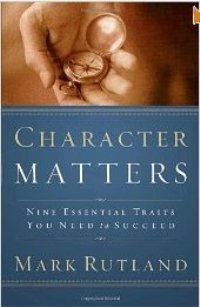 Below is a free chapter on "loyalty" from Character Matters, which Rutland says is one of his best.
Below is a free chapter on "loyalty" from Character Matters, which Rutland says is one of his best.
Loyalty: Character in Community
Only once in American history did the head of state of a foreign government surrender his position and the sovereignty of his own nation to unite with the United States—the Republic of Texas, and its president, Sam Houston.
Adventurer, frontiersman, general and politician, Sam Houston's name was a household word in Texas and in the United States when Abraham Lincoln was an unknown backwoods lawyer. It is fascinating to note that the Texas Declaration of Independence was signed on Houston's forty-third birthday, March 2, 1836. Houston and his army of ragtag volunteers defeated the might of a massive Mexican army and established a fledgling nation whose capital was called Washington-on-the-Brazos. Like George Washington, Houston, the beloved general, became the revered first president of the wild and sprawling new nation of Texas.
Less than thirty years later, Texas, now a state, debated whether to join the Confederacy in secession or to remain with the Union it had voluntarily entered in 1845. The vast majority raucously demanded secession. One voice, Houston's, cried out for national loyalty.
The elder statesman of Texas stumped the state to the point of exhaustion with this message: "The destruction of the Union would be the destruction of all the states."
Shunned by young hotheads eager for war and dismissed by a new generation, Houston's pleas for national loyalty were ignored. If Texas had listened, tragedy might have been averted. The refusal of Texas to join the Confederacy might well have dissuaded other states, and the bloodiest nightmare in American history might have been avoided. Unfortunately, Houston's cry to remain in the Union was rejected. Houston, now fatigued and discouraged, must have sensed he was failing physically as well as politically.
"I wish if this Union must be dissolved, that its ruins may be the monument of my grave, and the graves of my family. I wish no epitaph to be written to tell that I survived the ruin of this glorious Union."
Pressure mounted on the old warrior to take the oath of allegiance to the Confederacy, but Houston's loyalty held. He refused, knowing that it meant the certain end of his political career in the South and the ostracism of his family. For Houston, loyalty to his nation was stronger than any hope of a political future. He steadfastly refused the oath.
"In the name of the Constitution of Texas, which has been trampled upon, I refuse to take this oath. I love Texas too well to bring civil strife and bloodshed upon her."
He saw the beginning of the bloodshed he prophesied, but he did not survive to see its conclusion. Houston was hurt by the rejection of his leadership, deeply saddened by the horrible Civil War, but unaltered in his devotion to his nation. Sam Houston was a Texan, the Texan, but he was, above all things, a loyal American.
An ounce of loyalty is worth a pound of cleverness.—ELBERT HUBBARD
LOYALTY IS THE VERY FABRIC OF COMMUNITY. Devoid of basic trust in some kind of mutuality of commitment, relationships cannot prosper. Without loyalty, father and son will live as hated strangers, families will disintegrate, and culture will become bestial. Only invented taboos and fearsome superstitions can restrain such a murderous society from utter criminality.
When loyalty is lost, the very fabric of relationship unravels. Even the disloyal depend on someone else's loyalty. The philandering husband will bitterly resent his accountant's embezzlement. The bribed politician howls over his wife's adultery. The issue is not merely hypocrisy; it is a failure to comprehend the very nature of the virtue of loyalty. No one can translate into relationships a virtue that is fundamentally misunderstood. No society can expect loyalty to anchor its relationships once treachery becomes admirable. The seams of community are ripped asunder when treachery becomes an acquired virtue. In a society thus brutalized, no one is safe. Family ties mean little, and friendship means even less. Life without loyalty is fragile in the jungle of betrayal.
If loyalty is understood only in terms of isolated relationships, disillusionment and bitterness are inescapable. That is to say, a disloyal man is disloyal in his character rather than in respect to particular relationships. The prevailing wisdom of contemporary society contends that marital loyalty is irrelevant to job performance.
Quite the contrary! A man is not simply disloyal to his wife; he is disloyal. The wise employer will reason, "If he will be disloyal to his wife, why should I expect loyalty?"
The president of a certain company finally reduced the candidates for a certain opening to two final applicants. Both were very good. In fact, it grieved him not to hire them both. At dinner following the interview, the CEO analyzed the eager young hopefuls across from him.
"Do you mind if I ask a question now?" one of the young men asked. "My wife advised me to get a clear reading on one point, and I really trust her counsel."
The CEO totally ignored the question. Instead he seized the moment to test the other candidate. "What about you? Did your wife send you off with any questions in hand?"
"Hardly," the young man snickered. "She wouldn't know what to ask."
The old businessman chuckled conspiratorially and leaned close, hoping to draw the young man out.
"No head for business, eh?"
"No head for much of anything, actually," he answered. "A classic beauty from Boston. As they say, the porch light is on, but nobody is home."
As the two men shared the joke, the boss noticed that the other applicant sipped his coffee and ignored the jest.
"And your wife?" the employer asked the candidate who said he had a question from his wife. "Does she always tell you what to ask?"
"She certainly doesn't control me, if that's what you mean. She is very bright, and I trust her advice in many areas of life. She's really a wonderful person. I wish you could get to know her."
In that one moment the CEO knew he had his man. Someone who will mock his own wife was not for him. Loyalty was clearly in the character of the man he hired, and character was what he wanted.
The moral and social consequences of venerating the wicked are substantial and incredibly shortsighted beyond words. Loyalty is not a matter of trading off. One does not gain six points for voting a straight ticket, then lose three for company disloyalty, finishing at a good, solid plus three. Efforts to isolate or compartmentalize loyalty from the professional aspect of life are misguided and dangerous. A man does not simply act disloyally in some particular arena of his life, unrelated to the rest. A man is either loyal or he is not.
Merritt was a secure, four-term congressman. Only twenty-four hours ago he seemed invincible. Now he held the front page in his hand like a man holding his own death sentence. "Indicted!" the headline screamed. The article went on to outline the charges of influence-peddling and money-laundering. To add insult to injury, his secretary, Margaret, had revealed (along with other things) their long-standing affair in a full-color pictorial spread in Playboy. He calmed his jangled nerves and massaged his temples. Don't panic! He was sure he could plea-bargain the charges against him down to a misdemeanor and plead nolo contendre, taking a reduced punishment. He must show a sad disappointment with his own humanity but never admit culpability.
Later, in a painfully emotional press conference, he would denounce the newspapers for pouncing on the irrelevant sex scandal. His teary little mouse of a wife would stand bravely at his side while he suffered like a martyr. He played the scene in his mind. "My wife and I have come through this difficult time. We have a new depth through this incident, and our relationship is closer now than ever before." At that point he must embrace her protectively. "We believe the voters of this district are sophisticated and intelligent enough to separate these personal matters from my performance as their congressman." He would then boldly announce his candidacy for reelection. Oh, sure, many votes would be lost, but he knew he could count on the evangelical vote. He was "right" on their issues, and Christians love to forgive people. In fact, he would be hailed as a hero by many.
This was not going to be fun, but he could make it through. Life goes on, he thought.
Loyalty is the willingness, because of relational commitment, to deflect praise, admiration and success onto another. This loyalty may well be at great personal expense, but it will edify and bless its object.
Loyalty never usurps authority. It refuses to accept inappropriate love or praise that might properly exalt another. Loyalty is the glue that holds relationships together, makes families functional and armies victorious. Loyalty is the fabric of society. Without loyalty, no enlisted man can dare to hope that his general cares whether he lives or dies, and no captain can expect an inconvenient order to be obeyed. Without loyalty, marriage becomes a competitive minefield, companies become dangerously paranoid, and ruthless power politics will turn bishops into Machiavellian princes.
Loyalty is the basic element that validates and cements relationships. If husbands are disloyal to their wives, if children are disloyal to their parents, parents to children, employees to employers, there is no secure relationship, and the fabric of community soon unravels.
STOLEN HEARTS
Every month, on a certain day, the king's court in Israel was held for people who had exhausted all possibilities of adjudication in civil and criminal matters. On that day anyone could appeal directly to King David. His decisions, just or otherwise, were final. Of course, the backlog of appeals soon became tremendous.
David's son Absalom exploited this frustration for his own advantage. Standing tall in his fine chariot, the strikingly handsome Absalom created quite a stir. As the resplendent chariot rumbled through Jerusalem, Absalom's youthful good looks and flowing hair were admired by men and desired by women. It became his habit to wait at one of the city gates for those coming on the day of the king's court. Flattered at being summoned into Absalom's chariot, the aggrieved shared openly. He wooed them like a true politician, kissing their babies and consoling their hurts, yet offering no hope that David would prove helpful.
"It's not altogether David's fault," Absalom would explain sarcastically. "He's overworked, to be sure. We all understand that. The problem is that he stubbornly refuses to appoint a deputy. Now if I were deputy, or even king, I'd make sure you got justice. The appeal ought to go your way, but with David on the throne, well, who knows?"
No one loves a demagogue like the disgruntled. Grateful malcontents bowed down before Absalom and longed for him to be their champion. Absalom's personal embrace in traditional Middle Eastern style was an act weighted heavily with symbolism. Absalom's familiarity was calculated to seal their loyalty to him personally. Of course, he had no right to such dedication. Only David had a right to that.
So Absalom stole the hearts of the men of Israel.—2 SAMUEL 15:6
The throne was Absalom's by birth. It should have and would have gone to him. His untimely and tragic death, which cost him his destiny, was the inevitable end of his disloyalty and rebellion. His disloyalty caused his rebellion, and his rebellion cost him his life. When outward rebellion occurs, it is always because loyalty was not added to faith.
Loyalty refuses to accept inappropriate credit, receive improper admiration or usurp the respect due others. Such loyalty is usually carved into character at no small cost.
LOYALTY IN ACTION
The pastor of a small Midwestern church announced to his five adult Sunday school teachers, "God has laid on my heart that for the next three months all of you should teach on evangelism. I've prepared these lesson outlines for you. You can adjust them to suit your classes." The next Sunday, all five began the series.
Teacher 1 said to his class, "The pastor said we have to teach this stuff for the next three months. I want you to know that if I were the pastor, we wouldn't teach this, but I'm not the pastor, and this lesson isn't mine."
Teacher 2 obediently taught the material. Her class, responding enthusiastically, actually became soulwinners and caused the class and the church to grow. At the end of the series, they sang her praises.
"What a great idea you had to teach this series! What great lessons and marvelous outlines you had!"
"Thank you so very much," she said humbly. "I really prayed over it. I knew God was guiding me as I prepared and taught." Obedient in action, she stole the hearts of the people. It was the pastor's vision, and she should have deflected the praise onto him.
Teacher 3 taught the series of lessons, but it went badly. Everyone in the class ferociously objected, "We don't want to be soulwinners. We like the easy, comfortable Sunday school class we've had for forty years, and you're pushing us out into the streets. We don't want this."
To this the teacher replied, "It wasn't my idea. I never wanted to teach this stuff in the first place! You know how the pastor is. Complain to him." This teacher's unwillingness to shield the pastor is characterless and disloyal.
Teacher 4's Sunday school class also complained to her, but she said, "I felt it was what God was telling me to do. I tried to do my best. If the pastor could only have taught it himself, I know he would have done better. So if you're angry, be angry with me." She loyally accepted the brunt of the criticism, allowing all respect and admiration to pass on to higher authority. Furthermore, she probably told the truth; the pastor would have done better.
Teacher 5's class proclaimed, "This is the most wonderful thing that's ever happened to our Sunday school class!" To which the teacher replied, "I can agree with you because I had nothing to do with it. God and the pastor worked this out. Pastor wrote it and handed it to me. Frankly, I had my misgivings, but I now see that the pastor was right. I thank God that he gave us this series, don't you?" That is loyalty in action.
THE STRATA OF LOYALTY
A particularly ironic confusion arises from our society's general disregard for the virtue of loyalty. We have contracted an inability to prioritize our loyalties. That is to say, confusion in society results from failure to establish appropriate levels of loyalty. Not all loyalties are created equal. Spheres of loyalty will often conflict. Weakness and instability in character will be the result of failure to distinguish levels of loyalty and to resolve this inner conflict.
A double-minded man is unstable in all his ways.—JAMES 1:8
Only by working downward from the ultimate loyalty can such dissonance be avoided. By first establishing the nonnegotiable, which can never be denied, the tension is eased at descending levels. Once that loyalty among all loyalties is settled, questions of conflict are more easily resolved.
A woman came to me for counseling claiming that her husband was ordering her to engage in prostitution. He was not a Christian, but he knew she was. He made this perverted demand by exploiting her convictions. He was head of the household, and she must be loyal to him. She evidently had accepted some kind of strong, legalistic teaching that convinced her that, no matter what her husband said, she had to submit to him as head of their household. This Christian woman was actually considering acceding to his demands.
She was deceived by confused loyalties combined with a false sense of submission. By allowing a secondary loyalty to her husband to supersede her ultimate loyalty to Jesus Christ, she nearly entered into serious immorality. Her unsaved husband was using her slavish misunderstanding of Scripture to manipulate her into doing what he wanted.
Another woman with whom I once counseled was awaiting her criminal trial for embezzlement. She had gotten involved with a man who was heavily in debt. He had pleaded with her to get some money for him or he would go to prison. She embezzled a substantial amount of money from her job to help him, fully intending to repay it. The scandal of her arrest was a bitter shock to her church and her family. When I asked how she could have fallen for such a tired old line, she responded that "she had no idea."
She was right! She had no idea. She rationalized her disloyalty to her God and to her employer by hiding behind loyalty to a man, and not much of a man, at that.
MARRIAGE: OUR COVENANT OF LOYALTY
For the married, loyalty to spouse is second only to loyalty to God. A marriage can struggle along racked by bitterness and unforgiveness, but once the cracks of disloyalty appear, only the grace of God can save it.
My wife and I have counseled with many couples whose marriages have been shaken by extramarital affairs. We try to bring them to the point of being honest with each other about the adultery. In so doing, we have found that husbands and wives generally ask very different questions.
Betrayed husbands typically ask questions about the sex. "Was he a better lover than I am? Was there something he did for you that I didn't? Did you enjoy him more than me?" Wounded wives more frequently ask, "Did you talk about me with her?" That shocked me the first time a woman asked it. I thought to myself, Of all things, that's what you want to know? You want to know what he was talking about? Her husband was sleeping with another woman, and she's interested in what they talked about!
I came to realize why the wives and not the husbands were asking the truly important question. The wives wanted to discern what the act of immorality really meant. They intuitively grasped that in the pillow talk the true depth of the disloyalty could be discerned.
Loyalty in marriage is quite the same as loyalty in any other relationship. It means constantly building up the other, even at one's own risk or expense. I cannot imagine a woman being more loyal to her husband than my wife is to me. When I go to preach where my wife has previously spoken, I am often asked, "Are you really as wonderful as your wife says?" Of course, that makes me feel like a million dollars. I must, of course, humbly defer to my wife's wisdom and discernment.
Her loyalty, in turn, makes me want to respond in kind. It escalates, and we begin to race with each other to see who can build up the other more. For many couples the same cycle seems to work in reverse. My wife and I are always shocked to hear couples argue and contradict each other in public.
The husband will say, "I remember back in 1957, we moved to Topeka."
"No, no, dummy," the wife interrupts. "It was 1956."
"No," he insists, "it was 1957 because it was the year Charlie was born."
"Great!" she cries. "That's typical! It was the year that Charlie was born, but he was born in '56. You don't know any of the birthdays of the children."
This tedious argument goes agonizingly on and on until I imagine myself jumping on the table like the Mad Hatter, stamping about in the tea cakes shouting, "I don't care! I don't care whether it was in '56 or '57. And I don't care about Charlie's birthday!"
Such pathetic arguments are a complete breakdown of marital loyalty. The loyal wife allows her chronically confused husband to state categorically that it was 1957 even if she knows it was actually before the Crimean War. Alone in the car, away from everyone else, she tenderly reminds him, "I know you said 1957, and you're probably right. You almost always are. It just seems to me we were driving a DeSoto that year. Did we own a DeSoto as late as '57?"
That affords him a little latitude. If she shouts "1956!" like the volcano goddess, he is going to fight back. It is naive, if not insane, to think he is going to admit in front of five other couples, "Oh, yes, dear, you're right. What a donkey I am."
Husbands, on the other hand, often say the most outrageously disloyal things disguised as jokes. "Are you going to eat all of that?" the husband asks as his wife's banana split arrives, borne by two waiters.
Her spine rigid with wounded, feminine pride, she announces, "Yes, I'm going to eat this and five more. By Christmas I intend to be as big as the Hindenburg."
A small gathering at our house was attended by a couple who were desperately trying to dig their way out of debt. The woman loudly complained ad nauseum that her husband had taken a second job. The family never saw him, the children were neglected and she felt like a widow.
When my wife suggested that the woman help her in the kitchen for a few minutes, they were gone for nearly half an hour. When the woman came back, she looked like a naughty child returning to class from the principal's office. For a while she sat quietly. Then, completely out of nowhere, having nothing to do with the conversation, she announced, "That reminds me of what a wonderful man my husband is! Did you know he has taken a second job? He works so hard just to take care of me and the kids."
Alison had helped her realize she was being disloyal to her husband. She was tearing her husband down in front of others, which in turn elevated her stock with no one.
THE DISLOYALTY OF CRITICISM
In criticizing the wisdom and ability of a superior, a subordinate lowers himself. Logic dictates that the lesser works for the greater. Therefore if the boss is the champion nitwit of all time, what kind of people would work for him? If the boss is an all-around great person of tremendous insight and wisdom, the happy conclusion is that surely he showed wisdom in his hiring decisions. When I lift up my boss, I am lifted up. When I brag on my wife, I shall be held in honor by others. If I speak of her disloyally, others will agree with me that she certainly is stupid, stupid enough to marry me! Likewise, if my parents are the village idiots, well, they raised me.
VERTICAL LOYALTY: A TWO-WAY STREET
Loyalty must function both upwardly and downwardly. Upward loyalty is shown to our superiors. It is being willing for them to get the credit while we take the blame. This is the key to corporate loyalty. If the middle-level employee, with subordinates beneath him and superiors above him, shows any disloyalty, the fabric of community in that corporate structure begins to shred.
The CEO of every corporation should periodically invite someone to teach his employees about corporate loyalty. They must know how to deflect praise and admiration onto the boss while being willing to accept the blame when things go badly.
I have sometimes had the unfortunate experience of calling someone's office only to have a secretary say, "I don't know where he is. Many times he doesn't even come in until 10 or 11 o'clock. I guess he's playing golf somewhere."
That is a blatant disloyalty, a deliberate attempt by that secretary to make her boss look bad. Perhaps it is an attempt to convey that she is working while the boss plays. It may also be an effort to prove her own value. Perhaps she is saying, "I don't know what my boss would do without me."
Upward loyalty helps to fulfill the superior's dreams. Lower-level managers are generally not hired to be visionaries. Any institution must operate on only one vision. An obvious example of this is an ambassador. Ambassadors do not get paid to have opinions, but to clearly communicate for the head of state. When a U.S. ambassador presents himself to a foreign government, no one there cares much about the ambassador's ideas. They only want to know what the president thinks.
DOWNWARD LOYALTY
Some time ago I went to a certain place of business owned by a man named John. I was there to meet him and several others for lunch. As we waited for our last arrival out in John's reception area, we chatted amiably with John's private secretary, a receptionist and a junior executive. Finally the last of our party arrived, quite late. As he rushed into John's reception area he apologized, "I'm sorry I'm late. My secretary didn't show up, and everything's crazy at my office. I'm having a terrible time with my staff."
John, in whose office we stood, said, "I know exactly how you feel. The worst thing I face is getting good help!" He said this in front of his own staff! I was so surprised that I couldn't keep from looking at his employees' faces. They looked as though they had been slapped. The younger associate literally slumped, and his secretary spun on her heel, went into her office and closed the door rather too loudly.
The receptionist sat down and started pounding her keyboard like Lizzie Borden. I searched John's face for some sign of hostility, and, finding none, I realized that he was not being cruel but insensitive. He had no idea what he had done.
As soon as John and I were alone, I said, "Brother, do you realize you just lacerated three of your employees? You badly hurt your own stock with those people." He was genuinely surprised, but when I rehearsed the scenario for him, the light gradually dawned. I said, "Think about how you would feel if that had happened to you. Your employees felt betrayed. You were disloyal to them. Furthermore, you missed a golden opportunity to strengthen their loyalty to you."
Downward loyalty happens as people at the top say, "I couldn't get this done without my employees."
Bosses should constantly be saying, "Our success is largely due to my great team of associates." They should be praising their employees, not just to their faces, but to other people.
THE SUPERNATURAL POWER OF LOYALTY
The redemptive grace of loyalty is so powerful it can literally infuse any situation with healing and miraculous blessings. Any force that powerful, however, cannot be violated without dire consequences. There are few virtues in the kingdom more honored by God than loyalty. Absalom's doom was sealed by his disloyalty to David, but David's loyalty to an unworthy Saul confirmed his destiny for the throne.
In the household of Naaman, a Syrian general, there lived a young Jewish slave girl. She had been captured by a Syrian raiding party. Plucked from the bosom of her family, alone in a foreign land, she served as a personal body slave to Naaman's wife, hardly a circumstance to inspire loyalty. Even the most outwardly obedient slave might murder his master mentally. Yet this little girl chose to be loyal with her whole heart. Somehow her family in Israel had deeply instilled loyalty in her character at a tender age. Now a slave in Syria, her well-shaped character found genuine concern for the one who owned her just as he owned his horse.
When Naaman contracted leprosy, the slave girl told her mistress, "Would God my lord were with the prophet [Elisha] that is in Samaria! for he would recover him of his leprosy" (2 Kings 5:3).
Amazing! She sent him who held her captive to her home country, where she surely longed to be. She sent him to be set free of his disease, though he held her in slavery. She genuinely wanted Naaman to be healed, and he was. The miracle that Naaman received by the ministry of Elisha never would have happened without that slave girl's unlikely loyalty.
Grateful for the miraculous healing, Naaman offered Elisha a substantial reward, which Elisha declined. Elisha's servant and understudy, Gehazi, shook his head in amazement. The Syrian had been miraculously healed! Why shouldn't Elisha be blessed? Gehazi reasoned in his heart. Do not muzzle the ox, he thought to himself.
Elisha refused the luxurious gifts of the Syrian, but Gehazi would not. He waited until Naaman was out of Elisha's sight, and then he raced after the foreign general. Elisha had changed his mind, Gehazi explained to the Syrian. Two visiting prophets had arrived, and Elisha would now be happy to accept some gifts after all. Naaman was only too delighted to give.
Elisha, however, discerned the deception and struck the hapless Gehazi with leprosy. In other words, if Gehazi wanted the Syrian's money, then by all means he should have the Syrian's disease as well.
The greed of Gehazi is obvious. The subtler issue of disloyalty is more easily overlooked. For personal gain he misrepresented his employer's motives. Acting out of self-interest, he denied his superior's nobility, goals, purpose and will. What an ironic contrast!
A slave girl's character and loyalty brought miraculous healing and blessing, while the disloyalty of a prophet in training brought scandal, disease and death. Loyalty is a gemstone virtue whose luster, in a golden setting of faithfulness, brings glory to God and health to all it touches.
A Tribute to Billy Hornsby
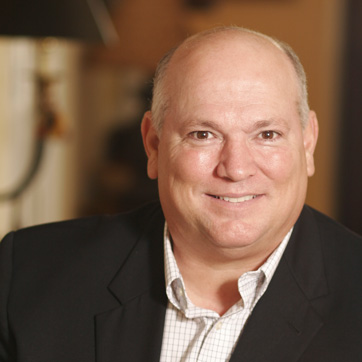 Church-planting pioneer Billy Hornsby, who worked for more than 30 years with church leaders nationally and internationally, passed away on March 23 after a battle with cancer.
Church-planting pioneer Billy Hornsby, who worked for more than 30 years with church leaders nationally and internationally, passed away on March 23 after a battle with cancer.
"On March 23, 2011 at 9:44 p.m., our father and friend Billy Hornsby went to be with the Lord. Billy's passion for God, family, life and leaders around the world will be long remembered," announced Chris Hodges, founding and senior pastor of Church of the Highlands in Birmingham, Ala. Hodges is also Hornsby's son-in-law.
Married for more than 40 years to his wife, Charlene, Hornsby was a published author who directed a nationwide church planting organization, the Association of Related Churches (ARC)—one of the most successful church-planting organizations in the world—and served as the senior European consultant for EQUIP, John Maxwell's global leadership training organization. Since Hornsby formed ARC in 2000 with a handful of pastors, the network's congregations have often been recognized among the fastest growing churches in the nation.
Honoring a General
Prior to Billy Hornsby's death, friends and leaders from across the nation paid tribute to ARC's inspirational co-founder, president and spiritual father. We've gathered some of those tributes here to honor Billy and give you a sense of what a true spiritual general he was.
Yellow + Red = Orange
 If you're unfamiliar with the equation above and how it relates to family ministry, you probably aren't thinking orange yet. And you likely haven't heard of Reggie Joiner, one of the leaders behind this innovative movement that's redefining how churches (yellow) and families (red) combine efforts to have a greater impact on the next generation.
If you're unfamiliar with the equation above and how it relates to family ministry, you probably aren't thinking orange yet. And you likely haven't heard of Reggie Joiner, one of the leaders behind this innovative movement that's redefining how churches (yellow) and families (red) combine efforts to have a greater impact on the next generation.
Joiner, who directed the family ministries of North Point Community Church in Atlanta and now leads the reThink Group, doesn't take issue with the effectiveness of either church or family. His challenge: What if they were both designed to work together to effect the younger generations? Check out the fascinating conversation we had with Joiner below.
| {mp3}Joiner/Reggie-Joiner-Interview-Edited{/mp3} |
Lend Me Your Building
How to protect your ministry’s facilities and welcome community use
Customer Service
Magazine Customer Service
To inquire about subscribing to one of our magazines please contact [email protected](please note SpiritLed Woman and New Man are not available in print - you can sign up for the e-magazines here)
If you have any other questions about your current print subscription information, please email:
[email protected]
If you would like to contact someone about your current online subscription please use the email address below. Be sure to include the name and email address used for the online magazine subscription.
[email protected]
About Strang Communications
We are Strang Communications, a multi-media communications company focused on spreading the name and fame of Jesus throughout the world through the mass media. Our company was founded in 1975 by Stephen Strang. We publish seven magazines, including Charisma & Christian Life, Ministry Today, Christian Retailing and Vida Cristiana (in Spanish). Each of our magazines have extensive websites and you are welcome to visit them and read thousands of articles by your keywords, as well as having a glimpse at their recent and past issues. There is also opportunity to subscribe on-line to any of our magazines. We are also the publishers of Charisma House Books, formerly Creation House, available in a wide variety of topics for every christian walk.
Our Founder
Stephen Strang, founder of Charisma magazine, is an award-winning journalist, entrepreneur, businessman and Christian leader. He is founder and president of Strang Communications Company, which in addition to Charisma, publishes New Man, SpiritLed Woman, Ministry Today, the Spanish magazine Vida Cristiana, Christian Retailing, Inspirational Gift Trends, The Church Bookstore, and Excel. His Central Florida, based company also includes Charisma House, Siloam, Creation House, Casa Creación, Realms, FrontLine, Christian LIFE, and Excel Books plus many other innovative products that in the last three decades have earned a reputation as the world’s leading charismatic publisher.
Strang has also been recognized by Time magazine in their 2005 list of the “Top 25 Evangelicals in America.” Referring to Charisma as a “lead publication that chronicles the fast-growing charismatic movement,” Time said Stephen Strang “[had] become powerful enough to wrangle a Bush interview.” His book publishing division has seen eight books on the New York Times bestseller list. They include The Faith of George W. Bush; Shadowmancer; The Maker’s Diet; The Threshing Floor and The Final Move Beyond Iraq, Fasting, 7 Pillars of Health, and 23 Minutes in Hell.
Strang is also known as a strong supporter of Israel and was involved when Christians United for Israel was organized in early 2006. He now serves as Director for the region serving Florida, Georgia, North Carolina and South Carolina, and has organized several “Nights to Honor Israel” featuring John Hagee as speaker in several southern States.
Among his many awards, Strang has received an honorary doctorate from Lee University in 1995 and has also been nominated as Entrepreneur of the Year. In 1973, as a University of Florida senior, he won the prestigious William Randolph Hearst Journalism Award.
For nearly a quarter of a century, Jamie Buckingham of Melbourne, Florida, was a leader in the emerging charismatic movement - often serving as its conscience through his many books and columns. For 13 years before his untimely death in 1992, he wrote the “Last Word” for Charisma magazine.
He also served as editor of Ministries Today and was on the Board of Directors of Strang Communications. His impact on the magazines, on the organization, and on Stephen Strang personally (as mentor and friend) was so great that “Buckingham Hall” was named in his memory on February 15, 2000.
Robert Walker was involved in the founding/editing of His magazine for students on secular college campuses, and of Sunday magazine (precursor of Christian Life)--the first pocket-size Christian publication. Time and Newsweek took note by featuring the event.
About Us
The Nuts-and-Bolts Version:
Ministry Today is a print and online magazine serving rising leaders within the church by empowering them with effective tools for Spirit-led ministry. (And yes, that’s our vision statement as well.)
The (Slightly) Extended Version:
For more than 25 years, Ministry Today has been the premier magazine among Christian leaders. Launched in 1983 by Charisma magazine founder Stephen Strang, Ministry Today was created to assist, inform and encourage pastors within the charismatic-Pentecostal movement. Although that mission and core audience remains the same today, we’ve expanded our readership over the years to include pastors from various parts of the church at large. What we’ve discovered in the process is that all church leaders—from senior pastors to children’s ministers, from Baptist to Foursquare—have the same universal cry: Help!
That’s where Ministry Today comes in. With a renewed emphasis to serve those serving others, we’re committed more than ever to providing pastors the tools needed to empower them for the vision God has placed within them. There are rarely enough hands to help, dollars in the budget or hours in the day to see this vision through … but there are resources that can help to overcome obstacles and improve ministry effectiveness. A how-to article on hearing the Holy Spirit more. An easy-to-follow profile on a thriving church’s singles ministry. A highlighted ministry tool that can make life easier for an entire church staff. These are the nuts and bolts of improving a Spirit-led ministry.
A bi-monthly magazine in print and a daily one online, Ministry Today does more than just inform Christian leaders; it connects them—to fellow pastors, to a movement, to ministries and companies that can come alongside them, and (most importantly) to God.
Privacy Policy
What information do we collect? How will we use it?
When you sign up for our newsletters, we need to know your e-mail address, first and last name. We gather this information only to get a better understanding of who you are and better serve you. We may use your name in order to personalize communications we have with you.
When you sign up for a web-based (online) or print subscription online, we collect your name, address, phone number, payment information and e-mail address. This is done so we can send the issues to you by mail or grant you access to our online subscriber's area.
Us or our partners may also use the information collected to occasionally notify you about special promotions, events and products updates, services and special offers you may find valuable.
We do not sell your personal information to others. However, we do rent our customer list of subscribers from our print magazine versions and offer our email lists available to our partners of those subscribers who have "opt-in." We may provide aggregate statistics about our customers, traffic patterns, and related demographic information to our partners, but these statistics will include no personally identifying information.
Our site's registration, order and survey forms require users to give us contact information (like their name, email, and postal address), financial information (like their bank account or credit card numbers), and demographic information (like their zip code, age, or income level). Contact information from the these forms are used to ship purchases and information about our company. The customer's contact information is also used to get in touch with the you when necessary.
Use of Cookies
"Cookies" are a form of information that can be stored on your computer by a Web server for a variety of reasons. The Charisma Media Online (SCO) uses cookies, but our online visitors should be assured that cookies are simply used by us to facilitate automated activity that:a. Passes no significant information about the user to the Internet or to Charisma Media
b. Is not analyzed to yield any information. We use "cookies" for the following interaction with our Web sites:
Navigation and Personalization:
Some actions that a user may take in SCO, particularly during Web publishing, may cause us to take the user through a series of steps that can be entered from a variety of locations. To make sure that we return the user to where they expect to be when they complete these steps, SCO will frequently send the user's browser a cookie to mark their current location. This sort of Web server "bookmark" helps us to provide a positive, predictable user experience for more sophisticated operations. If you choose to personalize your online visit with us by providing your name and city, we set a permanent cookie to display the information each time you visit. This "cookie" can be disabled or removed within your browser settings. However, browsers that have cookies disabled will always remain at "guest" status. We also use them to deliver content specific to your interests, and to save your password so you don't have to re-enter it each time you visit our site. We also use cookies to keep track of your shopping cart, and to make sure you don't see the same ad repeatedly.We do not use cookies for any other purpose, although this may change as we offer new features.
Bulletin Board, Forums and Online Chat
This site has chat rooms, forums, message boards, and/or news groups available to its users. Please remember that any information that is disclosed in these areas becomes public information and you should exercise caution when deciding to disclose your personal information.External Links
This site contains links to other sites. SCO is not responsible for the privacy practices or the content of such Web sites.Security of Information Collected
The customer data we collect is protected against unauthorized access. Charisma Media maintains personal information gathered online in a secure environment protected from unauthorized third party access, alteration, or misuse. Information collected from online visitors is stored on database and other servers kept in secure locations under the custody and control of Charisma Media or its third party vendors. Charisma Media also uses technologies and processes such as encryption, access control procedures and network firewalls to protect such servers. User accounts and related information are password protected using industry-standard, commercially reasonable methods. Charisma Media makes commercially reasonable efforts to protect such information and to limit its use and disclosure of such information as described herein, but cannot guarantee that such efforts will be successful.Children's Online Privacy Protection Act (COPPA)
We care about children and understand that they have special privacy needs. Therefore, we have adopted the following privacy policy regarding children:- We will NOT collect, use, or distribute to third parties personally identifiable information without prior verifiable parental consent.
- We will NOT give the child access to unmonitored chat rooms, message boards, email accounts, or other services that would give the child the ability to publicly post or otherwise distribute personally identifiable information without prior verifiable parental consent
- When verifiable parental consent is not obtained, we will only use the online contact information (such as email) to:
a. Respond directly to the child's request on a one-time basis and not use that information to re-contact the child for other purposes.
b. Request the name or online contact information of a parent for the purpose of obtaining verifiable parental consent or providing parental notification.
c. Respond more than once directly to a specific request from a child (such as in the case where a child requests a newsletter subscription) and not used to re-contact the child for other purposes. We will use our best efforts to provide parental notification, which will include the nature and intended use as well as an opportunity for the parent to prevent the use of the information and participation in the activity.
- We will provide the parent a description of the specific types of a personally identifiable information collected from their child upon request. We will allow the parent to refuse further use or future online collection of personally identifiable information and provide a way for a parent to obtain any personally identifiable information collected from their child.
- We will provide notice to children in age appropriate terms of what personally identifiable information is to be collected.
- We will NOT provide any links to Web sites that are unsuitable for children.
- We will encourage children to get their parent's permission before sharing personal information online. Any questions regarding the information we collect from children or our parental consent policy should be directed to:
Customer Service
Charisma Media Co.
600 Rinehart Rd.
Lake Mary, FL 32746
(407) 333-0600
[email protected]
Your consent
By using our Web site, you consent to the collection and use of this information. If we decide to change our privacy policy, we will post those changes on this page so that you are always aware of what information we collect, how we use it, and under what circumstances we disclose it. You will not receive these updates by snail mail or email.
Writers' Guidelines
Aim and Audience
As part of Charisma Media, Ministry Today is a leadership magazine for pastors, ministry leaders and business leaders who want to make a lasting impact in the kingdom of God. We equip Christian leaders to grow.
Through our Marketplace Ministry articles, we target kingdom-minded leaders who are making an impact for the gospel in the workplace and beyond. These leaders are key influencers for Christ in their professional lives. They are walking out their faith and seeing results as they are directed daily by the Holy Spirit.
More than 5 million readers access Charisma Media content every month. While our publications have historically served a largely charismatic/Pentecostal readership, Ministry Today has expanded its reach to engage a broader readership within the evangelical community.
Types of Articles We Publish—or Not
Along with articles inspiring and assisting ministry leaders, Ministry Today publishes features, departments and columns of interest to business leaders and other professionals working outside of traditional church or ministry settings. We sometimes repurpose blog content for our columns but seek to maintain a more formal tone.
We do not accept essays, editorials, sermons, book reviews, works of fiction or poetry.
How to Submit Your Article Idea
Most of our articles are assigned, but we sometimes publish unsolicited content. You may submit a brief query through our submission form. We are not always able to respond to every query, but we will respond if we need more information or if we accept your idea. If your query is accepted, we will provide further direction for the full article.
How to Submit an Article Upon Request
After we've accepted your query, write the article according to the guidelines we send. We prefer you send your article via email along with your byline and brief bio (job title, church or business, city/state, and social media or email through which our readers can contact you, if you so wish).
Departments: For the most part, this is the type of article that will be accepted from outside writers. These are the "nuts and bolts" of our magazine and run no longer than 700 words. These departments are categorized under the areas of Ministry Life, Leadership, Outreach and Facilities.
Features: A small percentage of freelance writers come up with such great article ideas that we give them more editorial space to develop their ideas. These are feature stories that are lengthier (2,600 words or fewer), more in-depth (including interviews and research) and run the gamut on subject matter—anything from ministry trend analysis to an in-depth how-to article. Before you write an extended feature for Ministry Today, we would like to see some writing samples of your published work.
If you choose to submit via mail, please send your article to:
Editor, Ministry Today
Charisma Media
600 Rinehart Rd.
Lake Mary, FL 32746
If you wish to have your article returned if it is not accepted for publication, please enclose a self-addressed stamped envelope.
Editorial Direction
Our standard when citing the Scriptures is the Modern English Version (MEV) Bible. Please use the MEV in your writing unless you need to use a different translation for a specific reason.
We follow Associated Press (newspaper) style with some exceptions. Our editors will edit your material according to this style.
Keep in mind that we do not use footnotes, but attribute as necessary within the article.
We generally prefer writing from a third-person point of view, although we make exceptions for certain types of content as deemed appropriate.
We may need to return your article for revisions or shorten it in the editing process.
Why We Reject Certain Submissions
The editors reserve the right to reject article submissions at our discretion. Some of the reasons we might reject submissions are:
- Article doesn't "fit" in our publication due to space limitations or content
- Poor grammar, punctuation and excessive capitalization
- Salacious, profane, libelous, defamatory or highly offensive/graphic content
Plagiarism Policy
At Charisma Media, we write in spirit and in truth. Philippians 1: 9-10 calls us to be "blameless" and approving of "things that are excellent." With that foundation, we decry the practice of plagiarism, using another's work without proper attribution.
As a writer, if you attempt to pass off someone else's writing as your own or do not source your quotes or information correctly, we will reject your submission. Plagiarism can also occur when you use someone else's argument or expression, so take care to cite the source.
Recycled content does not honor the spirit of excellence we seek to maintain in our writing. Plagiarism undermines the trust of our readers, which is critical to our work as journalists.
Our Best Advice to Writers
Please take time to read—even study—at least one or two of our recent issues before submitting a query. Sometimes people submit their writing without ever having read or understood our magazine or its readership, and sometimes people will have read our magazine years ago and think they understand it today. But because editorial direction changes, it is vital that you are familiar with our current magazine and readership. You may read a digital version of Ministry Today at our website, ministrytodaymag.com.
Have Questions?
Email any questions to [email protected]. We want to answer emails but do not guarantee a response.


